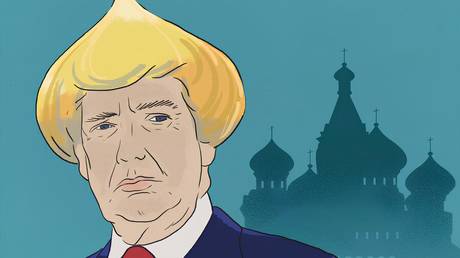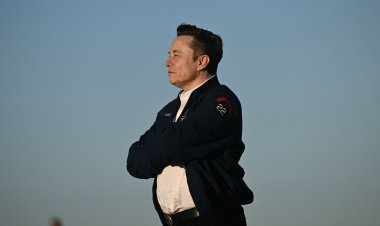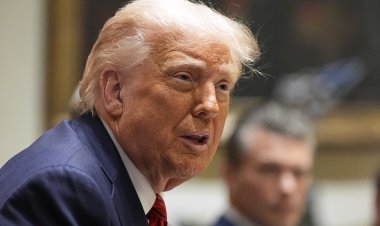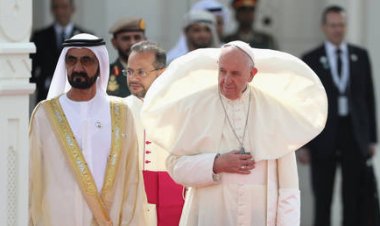Trump's Realpolitik Approach: Shattering Established Alliances, Creating New Agreements
Explore the reasons behind the United States' shift away from Western Europe and its growing interest in Russia.

A year ago, it would have been unimaginable to think that the United States would pressure Ukraine into paying reparations, demand that Russia no longer be labeled an ‘aggressor’, consider annexing Canada, and critique Western Europe for its democratic shortcomings. Yet here we are, in February 2025, witnessing a dramatic transformation that seemed absurd not long ago.
This marks perhaps the most significant shift in US foreign policy since the early 20th century. Over a century ago, the US entered World War I, establishing itself as a global power and a proponent of the liberal world order. Today, there is a striking reversal, as Washington appears to be dismantling its own legacy. The idealistic liberalism that has long characterized US foreign policy is giving way to a more pragmatic, realpolitik approach.
#### Trump’s America: A Radical Turn
This significant change didn’t occur overnight. President Donald Trump has been advocating for a fundamental shift in America’s global role since at least 2015. While his first term largely featured rhetoric without substantial action, many dismissed his words as mere posturing. Even as his second term began with an aggressive reconfiguration of the global order, it remained uncertain whether his actions were genuine or just exploratory.
The Munich Security Conference this year clarified the situation. Following Vice President J.D. Vance’s groundbreaking address, it became clear that the traditional United States—the one committed to Western unity and global democracy—was no more. What remains is a new America, focused on self-interest ahead of ideological commitments.
#### Prioritizing China, Abandoning Europe
For Trump, China stands as America’s foremost adversary. He perceives Beijing as an existential threat, accusing it of draining wealth from the US via trade imbalances and expanding its influence into the Western Hemisphere, historically regarded as America's exclusive domain. In response, Trump believes Washington needs to redirect its focus, arguing that unnecessary entanglements in lesser-priority regions have impeded this pivot.
Trump’s primary goal is to diminish US commitments to Europe, in line with his ‘America First’ doctrine: the US should prioritize its national interests and not finance European security based on outdated notions of transatlantic solidarity. The ideological chasm between him and Western European leaders has widened considerably, especially after their past criticisms of him and support for his domestic adversaries.
Driven by this perspective, Trump insists that Europe must shoulder its own security expenses. He expects NATO allies to contribute their fair share and is unafraid to advocate for leadership changes that align more with his views. This strategy aims to alleviate what he perceives as an undue burden on the US, enabling a refocused effort on the more critical geopolitical contest against China.
#### A Strategic Rapprochement with Russia
In stark contrast to his stance on Europe, Trump is actively seeking closer relations with Russia. This strategy is not unexpected. The dynamics among the US, Russia, and China have always been intricate. Historically, during the Cold War, American strategists like Henry Kissinger and Richard Nixon successfully drew China away from the Soviet Union to isolate Moscow. Trump appears determined to leverage a similar strategy, this time attempting to engage Russia to counter China's influence.
As part of this initiative, Trump is willing to make substantial concessions to Moscow, viewing Ukraine as non-essential to US vital interests and prepared to compromise Kiev's aspirations for the sake of Russian cooperation. Discussions even include the potential reintegration of Russia into Western institutions such as the G7. For Trump, these are minor trade-offs in the grand geopolitical schema that could lead to significant advantages.
#### Energy and Economic Interests
Energy considerations further propel Trump's outreach to Russia. He believes that the high energy prices are choking the American economy. Efforts to persuade US oil producers and Saudi Arabia to curb prices have not been fruitful. A thaw in relations with Moscow could provide an alternative path: increasing Russian oil and gas exports to the US while offering American firms profitable opportunities in Arctic resource extraction.
For Russia, a new era of political and economic collaboration with the United States could be advantageous—if Washington is willing to set aside past ideological constraints. Under Trump's leadership, there is a distinct possibility for negotiations grounded in pragmatic interests instead of the conventional liberal moralizing and hegemonic aspirations.
#### The Question of Longevity
The most significant uncertainty surrounding this new approach is its sustainability. Trump's presidency has rewritten decades of American foreign policy; however, the US political landscape remains unpredictable. There is no assurance that his successor—whether in 2029 or sooner—will continue this trajectory. Should Trump be removed or face significant internal opposition, the US might revert to its previous stance, potentially undermining his realignment efforts.
Nevertheless, as long as Trump maintains power, it’s likely that Washington will persist in its recalibration. The US is reshuffling its priorities, easing commitments in Europe, and pursuing strategic advantages in its rivalry with China. For Russia, this moment represents both a challenge and an opportunity. The critical question now is whether Moscow can leverage this situation to secure enduring benefits from its engagement with the new America.
As the world looks on, Trump is poised to reshape the geopolitical landscape—perhaps more dramatically than any US president in recent history.
*This article was first published by the online newspaper Gazeta.ru and was translated and edited by the RTN team.*
Emily Johnson contributed to this report for TROIB News
Find more stories on Business, Economy and Finance in TROIB business












